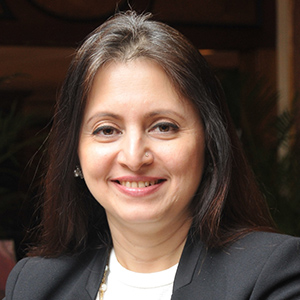The Department of Consumer Affairs under Ministry of Consumer Affairs, Food and Public Distribution released a guide ‘Endorsements Know-hows!’ for celebrities, influencers, and virtual influencers on social media platforms on 20 January 2023. The guide aims to ensure that individuals do not mislead their audiences when endorsing products or services and that they are in compliance with the Consumer Protection Act and any associated rules or guidelines. According to the guidelines, the social media influencers need to disclose all “material” interests such as gifts, hotel accommodation, equity, discounts, and awards while endorsing any products, services, or scheme, failing to do so strict legal action can be taken which includes a ban on endorsements for up to six years. Offenders invite a fine of Rs.10 lakh and repeated offenders can be fined up to Rs.50 lakh.
Medianews4u.com asked experts: Will this impact influencer marketing’s scale and scope?

“The impact of this announcement is imminent and it is going to be far and wide as one starts to peel the social media onion! The new guidelines will definitely bring about a big shift in the social media marketing landscape and a clean-up of hidden promotions,” observed Shweta Purandare, Advertising Compliance Expert.
“As on date, the Advertising Standards Council of India has a ‘wall of shame’ page featuring over 300 brands that have been non-compliant This report dated November 2022 is of the cases for the period between June 2021 to September 2022. It features India’s top celebrities and influencers and well-known brands too. As per a media report on July 2021 only 20pc influencers were adhering to a self-regulatory guideline. This was more so because brands themselves wanted to push out these advertisements as organic posts through celebrities and influencers. A gaping loophole of whether social media comes under the ambit of regulations and lack of regulations for mandatory disclosures, was being exploited to the hilt. Department of Consumer Affairs has finally cleared the ambiguity around advertising on social media and made disclosures mandatory,” said Purandare.

Rohit Agarwal, Founder & Director, Alpha Zegus, believes that there will be a temporary impact, which can be fixed in the long run.
“We might see a drop in numbers (reach, engagement, etc.) for branded content, now that there will be a clear disclosure, since the audience might just ‘skip the ad’ now that they know it. This might, in turn, cause a drop in creator fees for endorsements, as their fees are highly dependant on these data points. This can be avoided in the long run, if the influencer finds more innovative ways to showcase the brand, and make the branded content ‘enjoyable’ enough like their regular content. The scope of influencer marketing remains unaffected,” he said.

“The new guidelines will provide an overarching regulatory framework to a nascent industry that has become an essential tool in brands’ marketing mix and has redefined the marketing ecosystem,” noted Deepak Sakhuja, Co-founder, Ripple Links.
“Content creators are passionate, creative, digital and social evangelists who make great effort to create content to convey messages to their niche target audience. Government guidelines will provide regulatory clarity to creators. This will also make the task of all stakeholders in the creator value system smooth as the guidelines will ensure transparency resulting in regulatory compliance from each one. Consumers will also benefit as they can evaluate each content as organic or paid and will arrive at their purchase decision accordingly,” he added.

Ankita Gaba, former Co-founder of Social Samosa, has a different opinion, She doubts it will have any major effect on the spends by brands or the number of collaborations happening.
“If it has come into the eyes of the Ministry, it only means that it’s a growing industry and is expected to only grow further. The ones that might get noticed more for failing to comply will be the cream influencers. Only because there are so many more eyes on them. However, the class is very evolved. They will learn to not only adhere to it but also find ways where it will not impact their income generation potential as well as the engagement they generate on their promotional content. Also, with the involvement of the government, the fence-sitters will also now understand the seriousness of the industry. The more organised it gets, the more the involvement from brands. Even brands would want to safeguard their interests. This means, they will like to have guidelines in place and follow them so that they stay out of trouble,” Gaba added.
Arpan Soni, founding member and VP – Creators Management, Iplix Media, holds a similar opinion.
“This will not impact the scope or scale of influencer marketing. Brands and influencers have adapted to disclosure and the audience has also received it well. I feel that attaching a penalty of up to 50 lakh is too harsh because influencer marketing is still relatively new, brands and influencers are still learning. There are still tier 2, 3 cities where there is less awareness and the intent should be to educate initially,” added Soni.
Which band of influencers are likely to be most affected?
Purandare explained that the new guidelines would be a major blow to all influencer promotions of products prohibited from direct or indirect or surrogate advertising.
“Advertisements by certain professionals such as doctors / medical professionals (dermatologists, diabetologists, dentists), lawyers, Chartered Accounts is also prohibited by their respective Code of Ethics. Now a mandatory disclosure of such promotions as #Ad will be a double-edged sword for them. This new guideline will also be complimentary to the proposed guidelines that SEBI was working on. This was for financial influencers or fin-fluencers giving unsolicited financial advice on social media platforms,” she added.
“In my opinion, these Influencer guidelines could ‘dilute the influence’ of influencers because a hashtag “#AD” is a giveaway that these influencers were paid to churn out the posts. Celebrities on the other hand may not be affected as much because the star appeal overpowers content. However, the requirement of due diligence and having experienced the product themselves will fatten their contract and endorsement package,” she said.
“Honestly, every category of influencer will see the same kind of effect, as the same rule applies to one and all. But creators who live-stream might see a bigger challenge, as the rules for live-streaming are quite new, and a bit more challenging – as livestreams are required to constantly keeping pushing the paid promotion messaging,” said Agarwal.

















